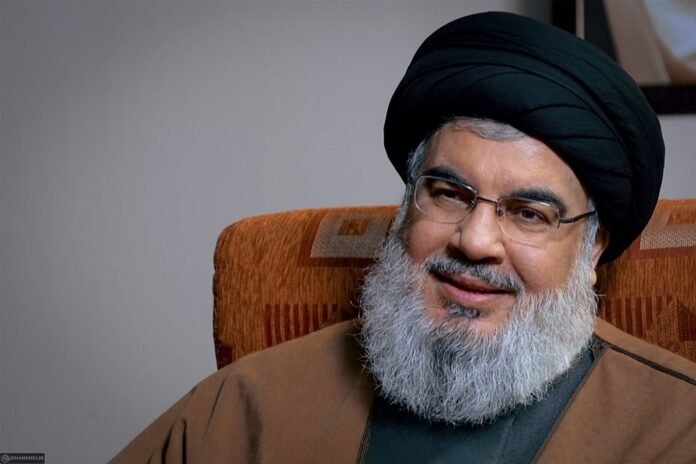The death of the Hezbollah leader escalates tensions in the region, with Israel preparing for potential ground offensives amid ongoing conflict
In a dramatic turn of events, Israel’s security situation intensified following the assassination of Hassan Nasrallah, the influential leader of Hezbollah. This incident occurred against a backdrop of escalating violence in the region, following Israel’s recent airstrikes that triggered widespread destruction in southern Lebanon. Over the past ten days, Israel executed a series of remote detonations aimed at communication devices utilized by Hezbollah operatives and civilians alike, resulting in thousands of casualties.
The Israeli airstrike that killed Nasrallah marked a significant escalation in the ongoing conflict. His death not only eradicated a prominent figure in the militant group but also left a power vacuum that could destabilize the region further. Analysts speculate that this could lead to a shift in Hezbollah’s strategies and potential retaliatory actions. In the aftermath, Israeli forces have reportedly begun preparations for a limited ground offensive in southern Lebanon, intending to secure the area and prevent further attacks on northern Israel.
The Israeli government hopes this military action will allow the return of over 60,000 civilians who had to flee their homes due to continuous attacks from Hezbollah since the outbreak of hostilities after Hamas’s October 7 attacks on Israel. Meanwhile, talks to negotiate a ceasefire in Gaza appear stagnant, as the prospect of renewed warfare between Israel and Lebanon looms larger.
Embed from Getty ImagesAs the conflict with Hamas drags into its second year, Israel finds itself in a precarious situation, with over 100 hostages still held captive. Recently, Hamas executed a new strategy that resulted in the deaths of six hostages, infuriating the Israeli public and sparking outrage against the government for its perceived failure to secure their release. To compound the tension, Israeli military operations have expanded into the West Bank, indicating a broadening of conflict dynamics.
The situation is further complicated by the involvement of the Houthis from Yemen, who have launched attacks on commercial vessels in the Red Sea. Despite US-led operations aimed at neutralizing these threats, the Houthis managed to strike Tel Aviv with a hypersonic missile, causing widespread panic among the Israeli population. This series of events has led to a chilling realization that the conflict’s ramifications extend beyond Israeli borders, entangling various regional players and interests.
In summary, the assassination of Hassan Nasrallah has escalated Israel’s security risks and underscored the complexities of regional geopolitics. With no clear resolution in sight, the potential for further conflict remains a troubling reality, complicating efforts toward peace.
Analysis
Political
The assassination of Hassan Nasrallah alters the political landscape in the Middle East significantly. His death could empower hardliners within Hezbollah who may seek revenge, escalating military responses from Israel. The situation puts pressure on the Israeli government to respond decisively to maintain public confidence. Conversely, it raises questions about the effectiveness of Israel’s intelligence and military strategy. As political leaders react to this volatile situation, both domestic and international responses will shape future diplomatic relations, especially as the United States and other allies monitor the unfolding conflict closely.
Social
The killing of a prominent figure like Nasrallah reverberates through the societies of both Israel and Lebanon, fueling narratives of martyrdom and resistance among Hezbollah’s supporters. It highlights the persistent societal divisions within these nations, exacerbating fears of further violence. The general public’s perception of safety is likely to shift, impacting daily life and interactions between communities. The assassination also reignites debates about national identity and security, as citizens grapple with the implications of ongoing conflict.
Racial
This event underscores racial and ethnic tensions within the region, particularly between Jewish and Arab populations. The assassination of Nasrallah may lead to increased animosity and violence, as various ethnic groups align with their respective factions. It raises critical questions about the role of ethnic identity in the conflict and how these dynamics influence public sentiment. The lack of cohesive narratives that encompass all ethnic backgrounds may hinder peace efforts and fuel cycles of retribution.
Gender
The impacts of the ongoing conflict disproportionately affect women and children, who bear the brunt of violence and displacement. The assassination of Nasrallah, alongside the broader conflict, can exacerbate existing gender inequalities. Women often find themselves in caregiving roles during crises, and the lack of security and resources can lead to increased vulnerability. The societal norms around gender may shift as women become more involved in peace advocacy, but the prevailing violence poses significant barriers to their participation.
Economic
Economically, the assassination has significant implications for the region’s stability. With rising tensions, foreign investments are likely to diminish, hampering economic recovery efforts. The cost of military operations diverts funds from essential services, further straining local economies already impacted by prolonged conflict. The ongoing violence can disrupt trade routes and exacerbate inflation, leading to increased hardship for ordinary citizens. Additionally, the prospect of renewed military actions raises fears of further economic sanctions and isolation from international markets.
